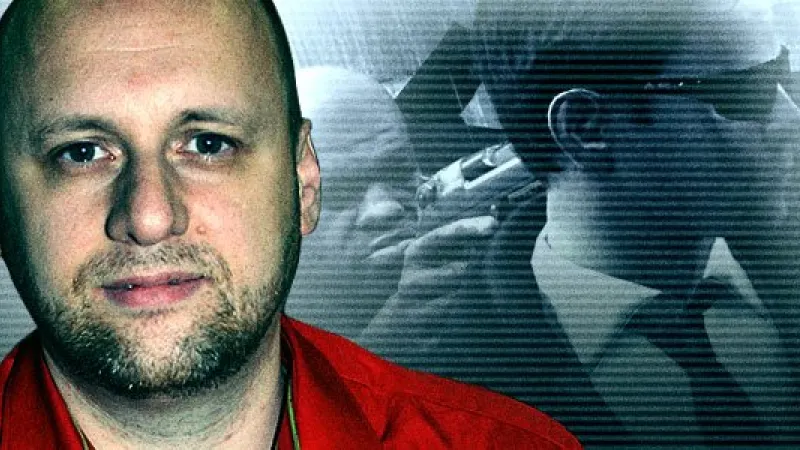Eurogamer Hands-on
It not only gives you direct control over a vast number of items in the environment, but combines that with numerous options to express yourself, and in scenarios other games would choke on. During quieter scenes, exploring the sets Quantic Dream has built to tell its story is almost distracting. Ooh, I can open the microwave. Ooh, I can turn on the washing machine. Ooh, I can juggle the fruit. The fine detail is amazing.
It's easy to find out about Ethan and Shaun's past, as the game weaves it into a number of scenarios - Ethan blames himself for the death of Shaun's brother, who ran in front of a car after getting lost on a shopping trip - but the more you explore the house the deeper the revelations go. In Ethan's office there's an architect's drawing coated in dust - a reminder of happier days in the family home and his old job. If you switch on the small TV here Ethan watches a home movie of his sons playing in the garden, and breaks down crying.
Is it fun? Almost never. Using the DualShock3's motion sensor to cut out a slice of pizza, or going downstairs to search for Shaun's teddy bear before bed, or sitting down at the kitchen table to watch over him while he does his homework - it all fits, but none of it entertains. Is it interesting? Almost always.
Elsewhere Pascal Langdale, the actor who plays Ethan Mars, talks to us about endless days in a full-body motion capture suit, about having to redo facial close-ups because a bead of sweat displaced one of the reflective markers attached to his cheek, about having to learn every line of dialogue in every possible outcome, because if his eyes moved left and right to read a script it would show up in the recording. The strength of the acting is particularly impressive when you consider that Ethan may need to get angry or soften considerably from one moment to the next depending on your input - getting that to look authentic must be torturous.
It's a testament to the developers' and actors' extraordinary dedication, then, that my first instinct is to react to the scene in terms of its dramatic goals and content rather than its technical construction, which is immaculate. And despite my initial reaction on the day (something I alluded to prematurely in our gamescom awards piece) listening back to the tape I feel different about it - never does it really feel forced or overtly contrived, despite the complexity of its purpose. "No one will shout at you or blame you if you do something wrong," says Cage. "It's just that the relationship will be affected."
Its success or failure, overall, is impossible to judge even after so many showcases and miles of copy. But rather like our understanding of the mechanics, there's a sense beginning to crystalise that it may not end up being a game that its audience goes into expecting to be entertained, but something they choose to go into for other reasons that prove to be just as valuable. It's as fascinating a prospect now as the semantics about quick-time events and button-matching are ultimately irrelevant.







Comment